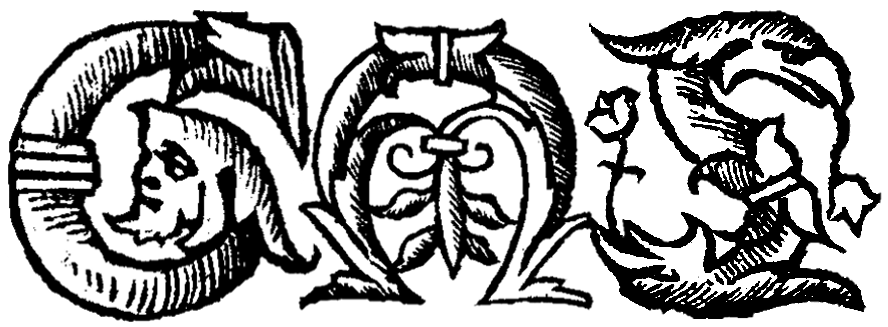The Song of Heinrich | De Heinrico

British Library MS Additional 24199 f.12 [Public Domain]
Read the text (PDF)
Introduction to the Text
De Heinrico (literally “of Heinrich,” and here translated as “The Song of Heinrich”) is a tenth-century historical narrative poem which gives an account of an Emperor called Otto greeting a Duke called Heinrich and handing over most of his power to him, though retaining his title. There has been considerable scholarly debate over who exactly Otto and Heinrich are, given that there are so many noblemen of those names in this period in Germany. The most popular explanations are that the poem is about either (1) Otto I the Great and his brother Heinrich, who were reconciled in 941 CE, or (2) Otto III, who was a small child when Heinrich the Quarrelsome was reconciled with the court and became regent in 991 CE.
A further mysterious element comes in line 14, where Otto greets Heinrich saying, “Welcome Heinrich, both of you with the same name.” There is little scholarly consensus as to whom the second Heinrich with the same name could be, with some scholars even suggesting this accepted translation is completely wrong. Both Otto and Heinrich are portrayed as humble Christians who do not covet power.
The poem consists of eight stanzas, each with either three or four lines. The first half of each line is in Latin and the seconds half is in Old High German.
Introduction to the Source
The poem survives in only one source, commonly referred to as the Cambridge Songs Manuscript (Carmina Cantabrigiensia), which contains many examples of Goliardic Medieval poetry, which is mostly in Latin but includes some French and German vernacular poems as well. The Goliards were young clergymen and university students who became poets and writers and were often critical of the church. Scholars have speculated that the Cambridge Songs Manuscript may have been a songbook for wandering minstrels, though it is more likely to have belonged to a court as their collection of songs. The original was probably made in France before the Norman Conquest in 1066 CE and was copied before being lost or destroyed, with the surviving copy making its way to the church of St. Augustine at Canterbury and eventually to Cambridge University. A number of the songs and poems in the manuscript were set to music by Carl Orff in the twentieth century as his famous Carmina Burana.
Further Reading
Bostock, John K, K C. King, and D R. McLintock. A Handbook on Old High German Literature. Oxford: Clarendon Press, 1976. Print.
Murdoch, Brian. Old High German Literature. Boston: Twayne Publishers, 1983. Print.
The Song of Heinrich | De Heinrico
Nunc almus assis filius thero euuigero thiernun
benignus fautor mihi, thaz ig iz cosan muozi
de quodam duce, themo heron Heinriche,
qui cum dignitate thero Beiaro riche beuuarode.
5 Intrans nempe nuntius, then keisar namoda her thus:
›cur sedes‹ infit ›Otdo. ther unsar keisar guodo
hic adest Heinrich bringit her hera kuniglich.
dignum tibi fore thir seluemo ze sine.‹
Tunc surrexit Otdo, ther unsar keisar guodo,
10 perrexit illi obuiam inde uilo manig man.
et excepit illum mid mihilon eron.
Primitus quoque dixit: ›uuillicumo Heinrich,
ambo uos equiuoci, bethiu goda endi mi:
nec non et socii, uuillicumo sid gi mi.‹
15 Dato responso fane Heinriche so scono
coniunxere manus. her leida ina in thaz godes hus:
petierunt ambo thero godes genatheno.
Oramine facto intfieng ina auer Otdo,
duxit in concilium mit michelon eron
20 et admisit illi so uuaz so her þar hafode,
preter quod regale, thes thir Heinrih ni gerade.
Tunc stetit al thiu sprakha sub firmo Heinriche:
quicquid Otdo fecit, al geried iz Heinrih:
quicquid ac omisit, ouch geried iz Heinrihc.
25 Hic non fuit ullus – thes hafon ig guoda fulleist
nobilibus ac liberis, thaz thid allaz uuar is –
cui non fecisset Heinrich allero rehto gilich.
The Song of Heinrich
Now help, kind son of the eternal Virgin,
my benevolent protector, so that I may tell
of a certain duke, of Lord Heinrich,
who governed the realm of Bavaria with honor.
5 Once there came a herald, who addressed the emperor thus:
“Why are you, our good emperor Otto, still sitting?” he asked.
“Heinrich is here, he brings a kingly entourage
that would be worthy of being your own.”
Then Otto stood up, our good emperor,
10 and went towards him [Heinrich] together with many men.
And he greeted him [Heinrich] with great honor.
First he said: “Welcome, Heinrich,
to both of you with the same name, from both God and me.
And to your companions, too: you are welcome here.”
15 After the greeting was returned in kind by Heinrich,
they took each other by the hand. He [Otto] lead him to the church:
both sought the grace of God.
After the prayer Otto took him again [by the hand?]
and lead him with great honor to the council
20 and granted him everything that he had at his disposal,
except royal prerogative, which Heinrich never coveted.
So thereafter all counseling was under Heinrich’s stewardship.
Whatever Otto did, Heinrich advised him so.
And whatever Otto did not do, Heinrich advised him so, too.
25 There was nobody—this has been confirmed
to me to be true by both noblemen and freemen—
to whom Heinrich would not have served complete justice.
